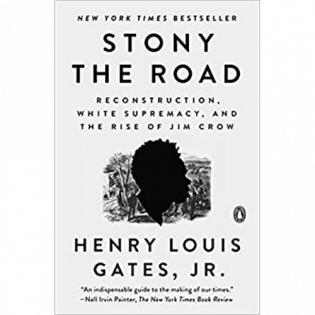Stony the Road Literature Guide
Keywords:
African American
Civil Rights
Discrimination
History
Social Justice
by Henry Louis Gates, Jr - A guide for parents, teachers, and group leaders to accompany the reading of this novel. The guide below provides before, during, and after-reading discussion questions. Choose from activities and discussion questions to build understanding of history and our role in it, as well as explore the idea of social justice and what it means in the current world we are living in.
The abolition of slavery in the aftermath of the Civil War is a familiar story, as is the civil rights revolution that transformed the nation after World War II. But the century in between remains a mystery to many: If emancipation sparked “a new birth of freedom” in Lincoln’s America, why was it necessary to march in Dr. Martin Luther King, Jr.’s America? In this literature guide for Stony the Road, you will seek answers to this question and finally self-evaluate what you can do to improve fairness, equality, and social justice in this country through your actions.
Literature Guide by Anthony Salciccioli
Discussion Questions
- What was the message of the Emancipation Proclamation and under what conditions was it made?
- How are the Civil War Amendments (13th-15th) related to the Emancipation Proclamation?
- What are the main features of the time in History from 1865-1877, known as Reconstruction?
- What are some of the paths that led to today's social justice issues.
- After the Reconstruction Era (1861-1873) there was a time known as “The Redemption.” What tactics were used during "the Redemption" in an attempt to roll back the gains made by African Americans after the Civil War?
- What parallels does the author draw between our present political situation and the era of Reconstruction and Redemption?
- What made the ruling of the Supreme Court Case of Plessy v. Ferguson (1896) significant in the story of race relations in the United States?
- What was the film “The Birth of a Nation” by D.W. Griffiths about and what influence did it have in American culture?
- What was “Sambo Art”? What themes and ideas did it promote, and what were some examples of it?
- Why did lynching happen as frequently as it did?
- What African American organizations emerged, and what did they accomplish?
- How do modern Civil Rights Movements compare to the prior movements featured in the book?
- What can be done today to move collective consensus and political decisions to foster a better and more equitable world?
- What can you do personally to improve matters in this nation?
Activities
- Watch this video of Professor Gates speaking to high school students at Pace University. Discuss what inspires you.
- Watch the movie Just Mercy about the injustice in the southern legal system that puts blacks in jail without evidence or a fair trial. The story shows how fear along with police and prison systems suppress black people.
- Contact local social justice nonprofits to ask what the needs are and determine one small thing you can do.
- Learn from reputable sources about voter suppression and what can be done to stop it.
- Learn about Civil Rights Leaders and how they work to create a more civil society.
- Take action that improves matters in your community.
